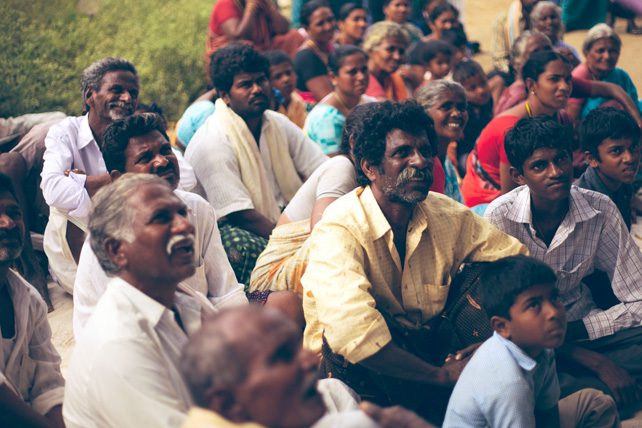“If it was ever necessary to feel the loss, pain, or risk of helping others, then it is today. If ever there was a time for the word of the gospel to shine in the context of acts of love, then today is the time.”
This is what Bohuš, a pastor in Slovakia, recently shared with fellow church leaders in the Acts 29 network. His wife, Natalia, is Ukrainian and has family trapped in Ukraine. In their heartfelt plea to follow the call of Christ laid out in Galatians 6:2 to carry one another’s burdens, the couple reflect what so many pastors and church planters in hard places have known for years—that the call of shepherd actually does mean pouring your life out for others. “Carrying a burden is not taking it and throwing it away,” Bohuš reminds us. “Instead, it means to impose the burden on ourselves. Christ did not cast our burdens away. He put them on his own back.”
As so many of us watch from thousands of miles away the courage, resolve, and sacrifice of the churches and Christians in Ukraine and surrounding nations, we may think we are seeing something rare. But the truth is that pastors and church planters all over the world who are serving in hard places demonstrate a spirit of humility and generosity that ought to serve as a model for our own ministry.
When Open Doors published its 2022 World Watch List only a few months ago, few of us could anticipate that a war was imminent. And yet the stories of churches and pastors bearing the burdens of others replicates what we have known to be true through our Church in Hard Places Initiative at Acts 29—namely, that church leaders who serve in difficult contexts and situations can be our greatest teachers. Their example reminds us that the call to serve Christ has always been a call to sacrifice our comfort and our security in order to make Christ known in such a dark world.
A “hard place” can mean many things—a place of economic insecurity and poverty, contexts of war and violence, urban areas with high rates of crime and marginalization, rural communities with a lack of resources, and of course, places where persecution is a reality. In fact, 1 in 5 global church leaders serve in a context of persecution. Sometimes at personal risk to themselves and their families, they step into leadership roles with a strong conviction that the call is greater than the sacrifice.
Pastoring in a hard place means bearing the burdens of that place and people. This may seem overwhelming as emotional, physical, social, and spiritual needs often far surpass the capacity pastors have to meet these same needs. But what we have found is that even when it seems the odds are stacked against them, pastors and church planters are making a way to shepherd well even in the hardest of places. I’d like to share some of their wisdom in the hopes that the lessons they have learned will prepare us to serve well even as our world gets increasingly complex.
On pastoring (From Pastor K, Turkey): What I’ve found is that there are two types of leaders who struggle the most in my context: those who have fear because of the environment they are in and those who trust in their own knowledge and wisdom. Without full faith in God and realizing his omnipotence, it is very hard to keep doing ministry in hard places. Your heart will always tremble. Additionally, when we are prideful and lean into only our own understanding of the Bible, culture, and methodology, eventually people will start to see our weaknesses. I regularly and often pray for a teachable heart and search for wise friends.
On witness (From Pastor S, India): Every context of church planting has its own joys and challenges. India is home to one of the largest unreached people groups in the world. There are 1.3 billion people who collectively speak about 19,500 dialects. Urban and rural Indian contexts are vastly different with an equal number of adherents to both the nationalistic Hindutva movement and secular liberalism. Church planting here requires contextualization, patience, and embracing the posture of a learner. Relationally connecting with your community requires both patience and also learning to develop an ear and heart open to the direction of the Holy Spirit. Committing to a spiritual discipline of sabbath and study has proven to be extremely difficult, but absolutely necessary.

